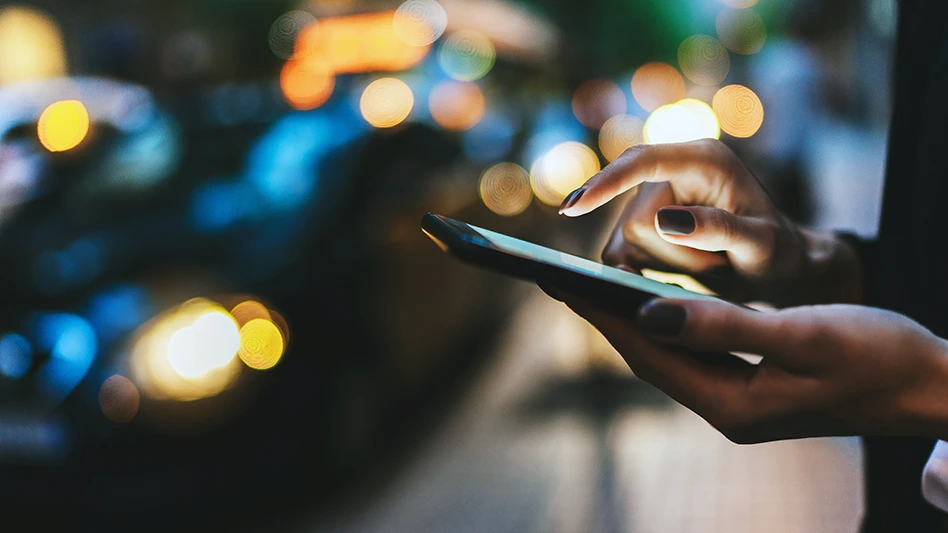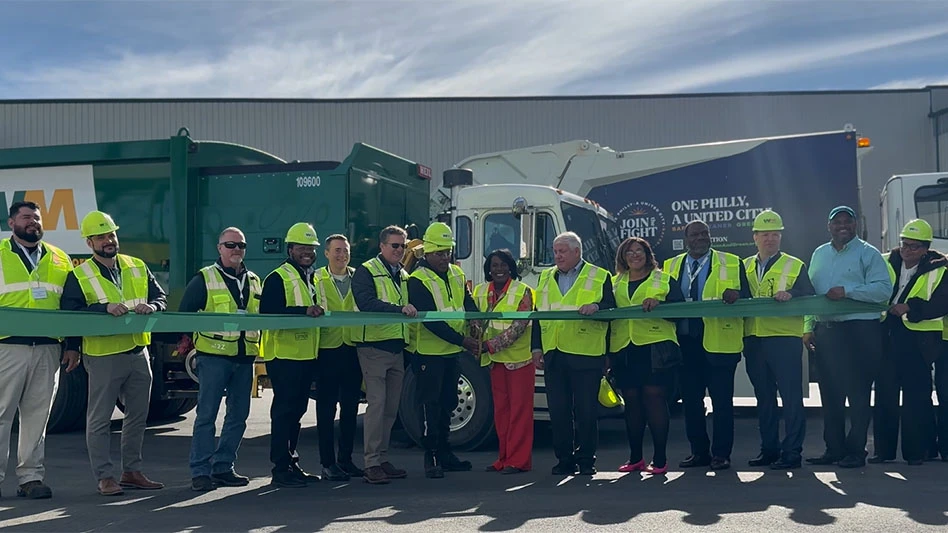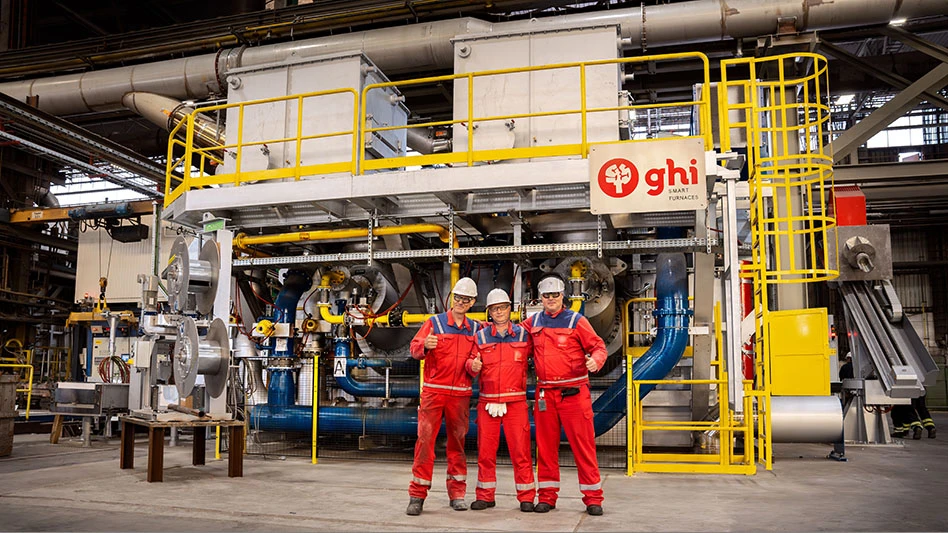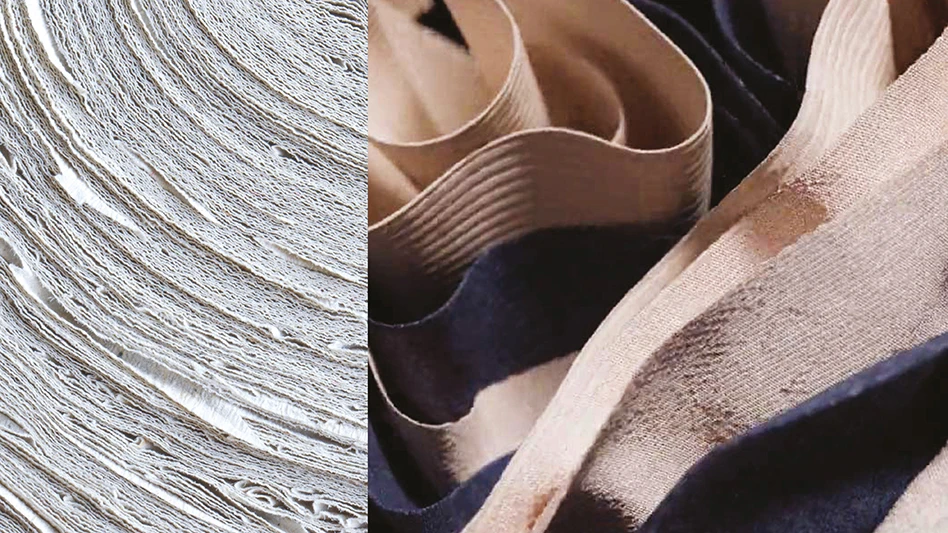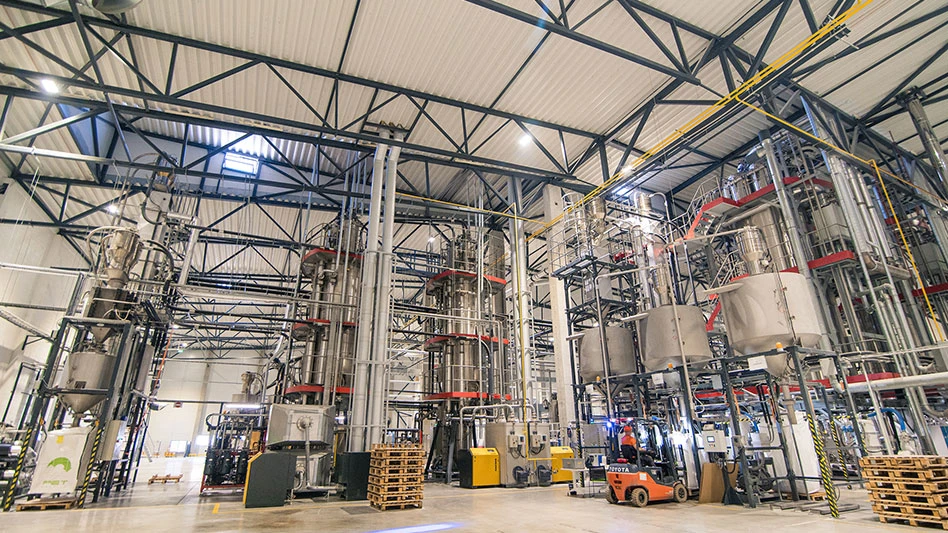
Photo courtesy of Iterum
Iterum, formerly PET Baltija, has opened a new polyethylene terephthalate (PET) bottle recycling plant in Olaine, Latvia, that features equipment from Austrian manufacturer Starlinger, making it what the company says is one of the largest and most advanced in Northern Europe.
With 80,000 tons per year of planned processing capacity, the new plant in Olaine can process about 30 percent more than the company's previous production facility in Jelgava, Latvia. Iterum has invested more than 10 million euros ($10.8 million) in the new plant, while its total investment in PET recycling in Latvia is more than 35 million euros, or $37.7 million.
The company’s building in Olaine complies with the sustainable construction standard BREEM and will fully use energy obtained from renewable resources. Wastewater treatment equipment, unique in Latvia, has been installed in the factory, allowing it to significantly reduce the use of chemicals in wastewater treatment. An air recuperation system also enables excess thermal energy generated in the PET melting process to be used to heat the building.
The new plant is one of largest and most modern PET processing plants in Northern Europe and one of the largest industrial buildings in Latvia, with a total indoor area of approximately 30,000 square meters (nearly 323,000 square feet) and an outdoor area of approximately 40,000 square meters (roughly 431,000 square feet).
The new factory will employ more than 250 people, Iterum says, with a special focus on employee well-being and the sustainability of the working environment.
Iterum is part of the largest environmental resource management and waste recycling group in the Baltics, Eco Baltia AS (JSC). The PET recycler rebranded this summer as part of a broader business development strategy to reinforce the company’s market position in the polymer recycling sector and to accelerate its international growth.
With the goals of climate neutrality and the Green Deal set by the European Union (EU), the role of recycling will significantly increase in its member states in the coming years, Iterum says. While the average recycling rate in Germany, Slovenia, Austria and the Netherlands is 65 percent, Latvia’s is less than 50 percent.
“The new production plant is a vivid example of how to turn waste into a valuable resource in the circular economy," Jānis Irbe, parliamentary secretary of Latvia’s Ministry of Climate and Energy, says of Iterum. "The circular economy must become the basis of the European economy."
"The creation of the new Iterum factory is one of the most ambitious development projects of Eco Baltia in recent years, the main goal of which is to increase the production capacity of PET granules and provide the necessary conditions for further development, strengthening our market share on the European market,” JSC board Chairman Māris Simanovičs adds.
“In recent years, we have implemented a rapid course of development of Eco Baltia companies in the Baltics and beyond and, along with organic growth, we have acquired several companies to expand our range of services. The new factory of Iterum will be a significant step forward in the group's growth, providing three times more production capacity than 10 years ago and 30 percent more than was possible at the production facility in Jelgava. This will allow us to significantly increase the fulfillment of the goals set by the EU."
RELATED: PET Baltija of Latvia acquires Czech plastics firm
Jūlija Zandersone, chairman of the board of Iterum, says sustainability is one of the main pillars of the factory's operation, with the company also prioritizing product quality.
"Almost 100 percent of our production is exported,” she says. “The main sales countries are Lithuania, Germany, Finland, Poland and other regions of the world. Although Latvia is territorially small compared to other European countries, we can be proud that in terms of PET processing with high-quality production, we are able to reach up to 5 percent of this market share. We believe that the new Iterum factory is a new step for the further development of PET recycling, aiming to increase its market share even more."
The project was implemented with the support of the INVL Baltic Sea Growth Fund and in cooperation with domestic industrial park developer SIA Piche.
Latest from Recycling Today
- ReElement, Posco partner to develop rare earth, magnet supply chain
- Comau to take part in EU’s Reinforce project
- Sustainable packaging: How do we get there?
- ReMA accepts Lifetime Achievement nominations
- ExxonMobil will add to chemical recycling capacity
- ESAB unveils new cutting torch models
- Celsa UK assets sold to Czech investment fund
- EPA releases ‘National Strategy to Prevent Plastic Pollution’
